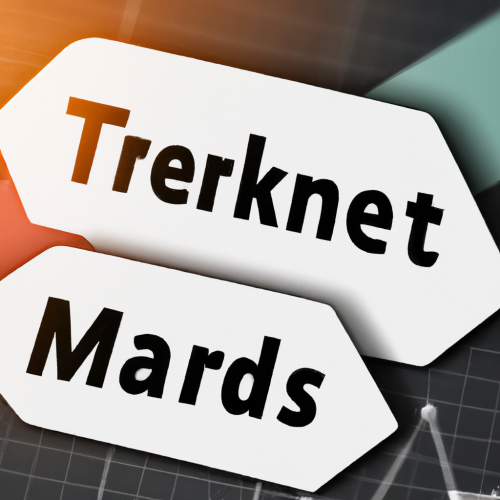Germany, renowned for its strategic location, strong economy, and exceptional engineering prowess, has established itself as a key player in the global business landscape. As the largest economy in Europe, it offers a wealth of opportunities for businesses seeking to expand their operations or tap into new markets. In this article, we will delve into the various aspects of the German business environment, providing valuable insights and highlighting the potential benefits and challenges that companies may encounter. By exploring key sectors, cultural nuances, and regulatory frameworks, we aim to equip readers with a comprehensive understanding of the German market and the potential it holds for their business ventures. Whether you are an entrepreneur exploring international expansion or a business professional seeking to gain insights into this dynamic economy, our article will serve as a valuable guide to navigate the German business landscape and seize the numerous opportunities it presents.
Overview of the German Business Landscape
Germany, known for its strong economy, is one of the major players in the global business arena. This European powerhouse boasts a diverse and robust business landscape that offers numerous opportunities for both domestic and international entrepreneurs. Here is a comprehensive overview of the key characteristics and sectors that shape Germany’s flourishing business environment.
1. Thriving Industries: Germany’s economy is driven by a wide range of industries, with automotive, machinery, chemicals, and technology leading the pack. The country is renowned for its high-quality manufacturing and engineering prowess, making it a global leader in these sectors. In recent years, the renewable energy and biotechnology industries have also experienced significant growth, reflecting Germany’s commitment to sustainability and innovation.
2. Small and Medium-sized Enterprises (SMEs): The backbone of the German economy lies in its vibrant SME sector. These businesses, often family-owned and operated, contribute significantly to employment and economic stability. German SMEs are known for their reliability, quality craftsmanship, and customer-oriented approach. They play a crucial role in supplying goods and services to both national and international markets.
3. Strong Workforce: Germany boasts a highly skilled and disciplined workforce, making it an attractive destination for many businesses. The country places great emphasis on vocational training, creating a talent pool that is well-prepared for a variety of industry needs. The work culture in Germany is characterized by punctuality, efficiency, and a commitment to maintaining high standards.
4. Supportive Business Environment: Germany offers a favorable business environment for entrepreneurs. The country provides extensive support networks, such as chambers of commerce and trade associations, which can offer valuable resources, advice, and networking opportunities. Additionally, German laws and regulations prioritize fair competition, intellectual property protection, and transparency, ensuring a level playing field for all businesses.
In summary, Germany’s business landscape is a vibrant tapestry of thriving industries, SMEs, a skilled workforce, and a supportive business environment. With its strong economy and commitment to innovation, Germany continues to be an attractive destination for businesses looking to expand their horizons and tap into new markets.
Market Trends and Opportunities in Germany
Germany, known for its strong economy and innovation, presents numerous market trends and exciting opportunities for business growth. Understanding these trends can help businesses navigate the dynamic German market and capitalize on emerging opportunities.
1. Sustainable Technologies: Germany has been at the forefront of promoting sustainable practices and renewable energy solutions. The country’s commitment to reducing carbon emissions has fostered a growing demand for environmentally friendly technologies. Businesses investing in renewable energy sources, waste management solutions, and energy-efficient products have the potential to thrive in this market.
2. Digital Transformation: In recent years, Germany has seen significant digital transformation across various sectors. E-commerce, digital health, and fintech industries are experiencing rapid growth. To seize opportunities in this digital landscape, businesses should consider aligning their strategies to meet German consumers’ increasing demand for online shopping, personalized healthcare, and efficient financial services.
3. Aging Population: Germany is grappling with an aging population, resulting in an increasing need for products and services catering to the elderly. This demographic shift creates opportunities for businesses in healthcare, assisted living facilities, smart home technologies, and leisure activities tailored to seniors. Recognizing and addressing the unique needs of this growing segment can yield significant prospects for entrepreneurial ventures.
4. Favourable Start-up Ecosystem: Germany’s start-up ecosystem is flourishing, particularly in cities like Berlin and Munich. The country provides ample support through grants, incubators, and innovation hubs, attracting both local and international entrepreneurs. Businesses in the technology, software development, and creative industries can benefit from the vibrant start-up community and collaborative opportunities.
By keeping a pulse on market trends and leveraging these opportunities, businesses can thrive and establish a strong foothold in the bustling German market. Whether it’s embracing sustainability, embracing digitalization, serving the aging population, or exploring the start-up landscape, Germany offers an exciting arena for businesses to innovate and grow.

Insights into German Business Culture and Etiquette
Germany, known for its strong economy and efficient business practices, has a unique set of cultural norms and etiquette that are important to understand when conducting business in the country. Here are some that can help you navigate the professional landscape:
1. Punctuality is Key:
In Germany, being punctual is crucial. Arriving on time for meetings and appointments is a sign of respect and professionalism. Ensure that you are well-prepared and arrive a few minutes early to demonstrate your commitment to the business relationship.
2. Formality and Professionalism:
Germans appreciate a formal and professional demeanor. Address your German colleagues and business partners using their titles and last names, unless explicitly invited to use their first names. Maintaining a serious and focused attitude during business interactions is generally expected.
3. Clear and Direct Communication:
Germans are known for their directness and assertiveness in communication. When discussing business matters, be concise and articulate your points clearly. Avoid excessive small talk and get straight to the point. Additionally, it is customary to provide detailed written documents to support your proposals and decisions.
4. Business Attire:
Business attire in Germany is typically conservative and formal. Men should wear suits and ties, while women should opt for professional attire. It is advisable to dress on the more formal side until you better understand the company culture and expectations.
By recognizing and respecting the unique aspects of German business culture and etiquette, you can build strong professional relationships in Germany and contribute to successful business ventures. Remember to adapt your behavior and approach according to the specific company and individuals you are working with.
Navigating Legal and Regulatory Challenges in Germany
Germany is known for its robust legal and regulatory framework, which can pose challenges for businesses operating within its borders. Understanding and navigating these complexities is essential for companies seeking to establish a presence in this thriving market. Here, we discuss key legal and regulatory considerations that companies should be aware of when operating in Germany.
1. **Data protection and privacy laws:** Germany has stringent data protection laws that align with the European Union’s General Data Protection Regulation (GDPR). Companies must ensure that they comply with strict requirements relating to data collection, storage, and processing. The appointment of a Data Protection Officer (DPO) is mandatory for many businesses, and consent from individuals is a fundamental prerequisite for data usage. Compliance with these regulations is crucial to avoid hefty fines and reputational damage.
2. **Labor laws:** Germany has a strong tradition of worker protection, and businesses operating in the country must adhere to a comprehensive set of labor laws. Employers are obliged to provide a safe working environment, fair wages, and regulated working hours. Ensuring compliance with regulations surrounding employee contracts, dismissal procedures, and social security contributions is vital to avoid legal complications and maintain harmonious employee relations.
3. **Corporate governance and reporting:** Germany has well-established corporate governance standards that require companies to operate transparently and be accountable to their stakeholders. Companies are legally obliged to prepare annual financial statements, which must comply with standardized accounting principles. Moreover, they must hold annual general meetings and grant certain rights to shareholders. Adhering to these guidelines is essential for companies seeking to build trust within the German business community and attract investors.
4. **Product regulations and certifications:** To ensure consumer safety and fair competition, Germany has rigorous product regulations and certification processes. Businesses must comply with labeling requirements, meet specific safety standards, and obtain necessary certifications before their products can be sold in the market. Failure to comply with these regulations may result in product recalls, fines, or even legal actions. Thoroughly understanding and fulfilling these requirements is critical for companies wishing to succeed in the German marketplace.
requires a thorough understanding of the country’s legal landscape. By addressing key areas such as data protection, labor laws, corporate governance, and product regulations, businesses can ensure compliance and minimize legal risks. Seeking legal counsel and keeping up-to-date with developments in the legal and regulatory environment are crucial steps toward achieving successful operations in Germany.
Key Strategies for Building Successful Business Relationships in Germany
1. Understand German Business Culture:
In order to build successful business relationships in Germany, it is crucial to familiarize yourself with the local business culture. Germans value punctuality, precision, and efficiency. Arrive on time for meetings and make sure to be well-prepared by having all necessary documents and materials in order. Use a formal and professional tone of voice, and address colleagues or clients using their titles and surnames until a more casual relationship is established.
2. Importance of Building Trust:
Trust is an essential component of business relationships in Germany. Germans tend to be cautious and value reliability above all else. It is crucial to consistently deliver on your promises and meet deadlines. Building trust takes time, so be patient and demonstrate your competence through your work. Be honest and transparent in your communication, and always follow through on your commitments.
3. Networking and Relationship Building:
Building successful business relationships in Germany often requires a strong network. Attend industry events, conferences, and trade shows to meet potential partners and clients. Take the time to socialize and build personal connections as Germans appreciate getting to know their business partners on a personal level. Show genuine interest in their culture and traditions, and be open to discussing non-business topics.
4. Be Mindful of Communication Style:
German communication style is typically direct and straightforward. Avoid excessive small talk or beating around the bush. Clearly articulate your thoughts and ideas, and provide concrete examples or evidence to support your arguments. Germans appreciate structured communication and logical reasoning. Additionally, it is important to note that the German language tends to be more formal, hence the use of a more formal tone might be required in written communication.
Recommendations for Foreign Investors in the German Market
If you are considering investing in the German market, it is important to have a solid understanding of the country’s business landscape and cultural norms. Here are some key recommendations to help foreign investors navigate the German market successfully.
1. Conduct thorough market research: Before making any investment decisions, it is crucial to conduct extensive market research to identify potential opportunities and understand the competitive landscape. Analyze market trends, consumer behavior, and economic indicators to gain valuable insights into the German market.
2. Build strong local partnerships: Establishing reliable partnerships with local companies or consultants can greatly facilitate your entry into the German market. These partnerships can help navigate local regulations, provide valuable market insights, and assist with connecting with potential customers or suppliers.
3. Familiarize yourself with German business culture: Germans value professionalism and precision in business interactions. It is essential to familiarize yourself with German business etiquette, such as being punctual, communicating clearly, and demonstrating a thorough understanding of your business proposition. Building trust and credibility with German counterparts is crucial for long-term success.
4. Adapt to legal and regulatory requirements: Germany has a well-established legal framework that foreign investors must adhere to. Ensure you comply with all legal and regulatory requirements, including obtaining necessary permits and licenses. Consulting with legal experts specializing in German business law is highly recommended to ensure compliance.
5. Leverage government support programs: Germany offers various support programs and incentives for foreign investors, such as subsidies, tax benefits, and grants. Familiarize yourself with these programs and leverage them to maximize your investment opportunities and minimize costs.
In conclusion, investing in the German market can be highly rewarding, but it requires careful planning and understanding of the local business environment. By conducting thorough market research, building strong partnerships, adapting to local business customs, complying with legal requirements, and leveraging government support, foreign investors can increase their chances of success in the vibrant German market.
Final Thoughts
In conclusion, Germany offers a plethora of opportunities for businesses seeking growth and success. With its robust economy, strong infrastructure, highly skilled workforce, and strategic location in the heart of Europe, the country continues to attract investors and entrepreneurs from around the world.
Through our analysis, we have gained valuable insights into the German business landscape. From the flourishing manufacturing sector to the thriving service industry, there is a diverse range of sectors where both established corporations and start-ups can thrive. The country’s commitment to innovation and sustainability further enhances its appeal as a business destination.
However, it is crucial for businesses entering the German market to navigate the unique regulatory and cultural considerations. Establishing strong networks and understanding the local business practices will be essential for seizing opportunities and building successful partnerships.
German businesses also prioritize sustainability and social responsibility, which present additional avenues for growth and collaboration. By aligning with the country’s sustainability goals and demonstrating a genuine commitment to corporate citizenship, companies can build strong relationships with German consumers and stakeholders.
It is important to note that Germany, like any country, is not without challenges. It faces economic fluctuations, global market uncertainties, and the need to adapt to technological advancements. Nevertheless, with its resilience, stability, and strong foundational elements, Germany remains a reliable environment for businesses to flourish.
By leveraging the opportunities, understanding the market dynamics, and adapting to the changing landscape, companies can position themselves for success in the vibrant German business world.
In summary, Germany provides a dynamic and promising business environment, offering a wealth of opportunities for those willing to explore them. By harnessing the insights provided in this article and seizing the chances this country presents, businesses stand to benefit from the country’s strong economy, rich innovation ecosystem, and its reputation for quality and reliability. With diligent research, strategic planning, and a willingness to adapt, success can undoubtedly be found within the vast landscape of German business.





